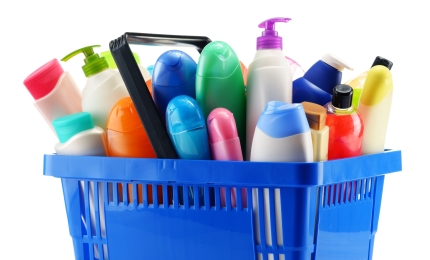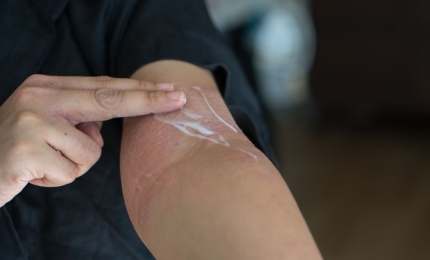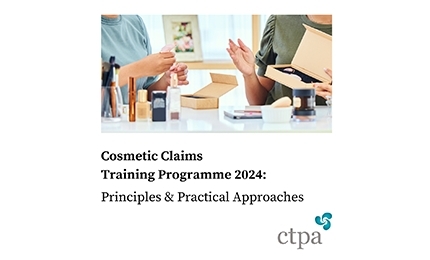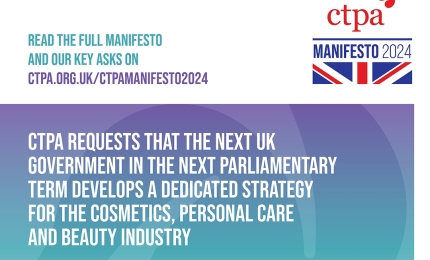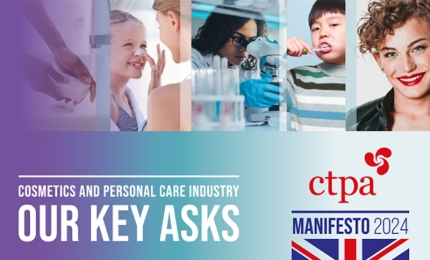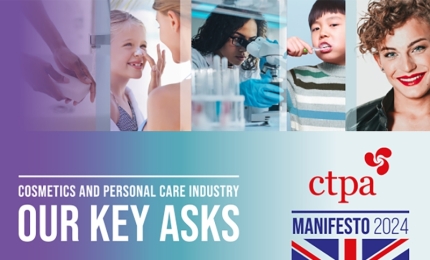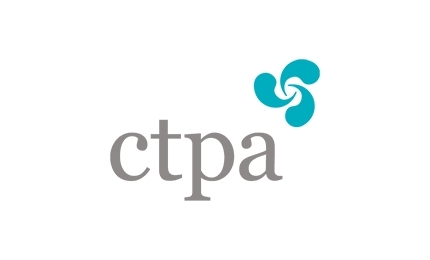Find us on...
By Dr Emma Meredith, Director-General, CTPA
 As the oohs and ahhs at the New Year’s Eve fireworks fade into memory and colleagues in the cosmetics and personal care sector head back to our offices, labs, stores or salons, many of us may well be wondering what 2023 has in store for us, after another tumultuous year in 2022.
As the oohs and ahhs at the New Year’s Eve fireworks fade into memory and colleagues in the cosmetics and personal care sector head back to our offices, labs, stores or salons, many of us may well be wondering what 2023 has in store for us, after another tumultuous year in 2022.
If the last few years have taught us anything, it’s to be ready for the unexpected - and no doubt that lived experience will serve us well again over the next 12 months. However, there are also regulatory and scientific developments afoot which will bring changes that we can predict with a level of certainty. It’s these changes that Team CTPA is busy planning for because they pose either significant risks or sizable opportunities for our industry.
Let’s ease ourselves into the year gently and start with the good…
1. A little less conversation, a little more action on the environment
2022 was an inspiring year for sustainable innovation. It’s clear that companies are increasingly seizing the chance to create gains for the planet. The cutting edge cosmetic science showcased at the IFSCC Congress in London last September was a shining example of this, with its exciting dual focus on the wellbeing of people and planet. In December, Cosmetics Europe launched its unprecedented industry-wide initiative, Commit for Our Planet, with twenty-seven companies already making voluntary commitments to reduce greenhouse gas emissions. Meanwhile, reporting for Extended Producer Responsibility (EPR) will come into play in 2023, which will incentivise more sustainable packaging - and can give a boost to take-back schemes.
What our industry needs next is to make sure that sustainable innovation is inclusive. That small companies, in particular, feel as equipped to support a more sustainable future as larger, better resourced industry players. That’s why for CTPA, 2023 will be all about ‘doability’ when it comes to sustainability: creating practical tools and guidance that can help all companies to transform lofty ambitions into small, achievable steps. We’ll be delivering a sustainable formulation guide, for example, that will help companies be more transparent about the footprint of their ingredients, across the supply chain, and we’ll be hosting our second Sustainability Summit, to spotlight and share industry best practice.
2. Now you see me: greater transparency will mean more responsible marketing
As companies become better equipped to assess the end-to-end impact of their products, 2023 could be the year we start to see more meaningful environmental claims. At the moment a brand might refer to itself as ‘environmentally friendly’ because it’s proud to use sustainable palm oil - and of course that’s a very positive thing. However, if at the same time that brand doesn’t understand where its wider ingredients are sourced, or what impact they may have, then is it an appropriate claim to make? Providing companies with the tools to be more transparent will help them to spot and make changes where they’re needed; will strengthen the claims they make; offer far greater transparency to their customers - and of course could make a big difference to the planet. It’s a win, win for everyone.
3. Inclusion in innovation - but will our industry’s marketing now follow suit?
It’s been a privilege for CTPA to work alongside our members on their Diversity, Equity and Inclusion (DEI) efforts in recent years. We're witnessing a shift away from narrow, stereotypical definitions of beauty towards products that are designed for all, and there is a greater emphasis than ever in promoting cosmetics careers to everyone.
Greater gains have certainly been made in some areas than others, and this was evidenced by a number of reports on DEI in 2022, including from CEW. Perhaps the biggest blocker to progress though is that the industry is not reflecting the scale of its inclusive innovation within its own marketing efforts. I believe 2023 will be the year we see companies really supercharge their DEI ambitions and achievements by updating the way they communicate about themselves, and their products; ensuring that their storytelling stays in step with the positive change being created.
4. Divergence - a risk and an opportunity
The ongoing issue of Divergence post the EU exit could be classified as good or bad, depending on where you’re standing. Work under the European Green Deal to classify chemicals by how essential they are to people’s lives could pose all manner of problems for cosmetics and personal care products, for instance. Is an ingredient in make-up non-essential because it’s not necessary to keep us alive in the same way that food is? Or does the growing body of evidence on the link between our industry’s products and individual well-being deserve due consideration at a time when mental health is at the forefront? To the latter question, we say a resounding yes!
That said, for colleagues across the UK, including within CTPA, there’s a clear opportunity to be more proactive than ever in championing and exporting the kind of risk-based and science based decision-making that enable both individuals and industry to thrive. The current work by the Department for Environment, Food and Rural Affairs (Defra) on the UK Chemicals Strategy provides the perfect platform for an informed and science-led debate on safety regulation. It offers the UK an exciting chance to carve out a path that others can follow.
5. 2023 is set to be a pioneering year for Non-Animal Methodologies (NAMs)
Lastly, our industry takes great pride in its commitment to replacing animal testing and to sharing its knowledge and expertise. In the late 90s the UK industry completely moved away from all animal testing on cosmetic products through a voluntary initiative and over the last 25 years the EU and UK cosmetics industries have invested more than 25 million euros in Non Animal Methodologies (NAMs), making them a global leader in this field today.
Early in 2022, CTPA took this pioneering approach a step further, convening an expert workshop on NAMs that brought together cosmetics company scientists, animal-free testing providers, NGOs, academia and UK Government regulators. We were inspired by the willingness to work together from all those in the room - and predict exciting developments on the horizon in 2023, from multiple parties. For our own part, CTPA will be creating tools and training for Safety Assessors on NAMs, ensuring standards remain exceptionally high and more people feel empowered to continue to prove safety without animal data. This is vital work that will benefit our industry - and far beyond - and I am in no doubt that the cosmetics and personal care sector will continue to lead the world on animal alternatives.

